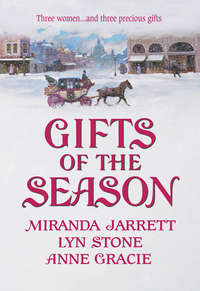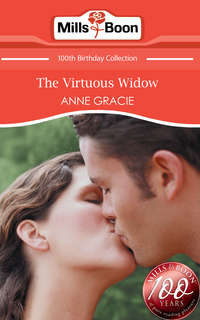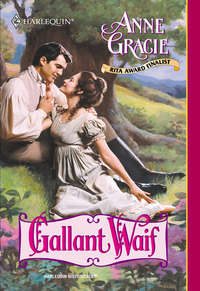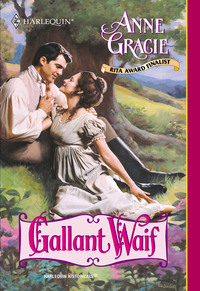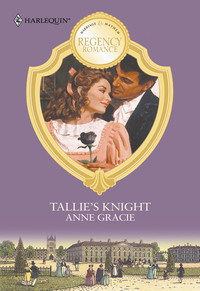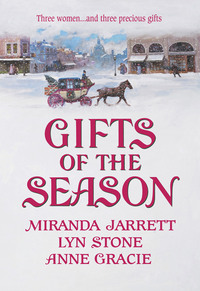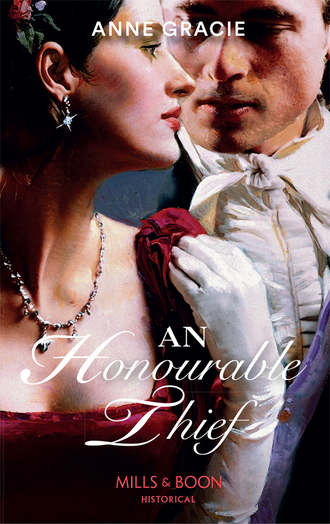
Полная версия
An Honourable Thief
“Where is the diamond mine, Aunt Rose?” Kit prompted gently.
“Why, in New South Wales, of course. Where else?”
New South Wales? A diamond mine in New South Wales? Kit closed her eyes for a brief second. Of course. It was just like her father to throw in a last-minute embellishment like this. A quite impossible, ridiculous, ludicrous embellishment.
Kit took a deep breath and unclenched her fists. It was, after all, improper, not to say unfilial, if not downright impossible, to strangle the dead!
“Did I get it wrong, my love?” said Rose anxiously. “But where else would it be, for that was where you were living, was it not? My friend Mr Harris thought it an exceeding odd place for a diamond mine, too. Oh, where is that wretched letter?”
“You told your friend Mr Harris I owned a diamond mine in New South Wales? Oh, Aunt Rose! How could you? As if anyone would ever believe anything so fantastical. And ridiculous! New South Wales is a tiny, struggling convict settlement. A penal colony, for Heaven’s sake!”
Kit took a deep breath as she considered her situation. Everything had been going so smoothly, so well—quite as if it were not one of Papa’s schemes. Now, suddenly, she had an impossible diamond mine to somehow incorporate into an already impossible plan! It was quite like old times. Suddenly her sense of humour got the better of her. Kit collapsed in a chair and peals of laughter rang out.
“But was that not correct, my love?” ventured Rose uncertainly. “Only I could have sworn that is what your father explained to me. And his letter did most certainly come from New South Wales.” She looked round her distractedly. “If only I could find his letter. It is quite mystifying to me, how so many things seem to disappear in this house.” She lifted a blue satin cushion and peered hopefully under it, but no letter appeared.
“No,” said Kit, the laughter dying from her eyes. “Papa started to tell me he had written to you, but he was dying. I knew only what he asked me to do. I might have known there would be other aspects to his scheme.”
“Scheme. What an odd name for it,” said Rose curiously. “I suppose all parents make plans for their daughters’ come-outs, but to call it a scheme—how very odd. But then your father was never one to take the simple straightforward path, was he?” She sighed pensively and smoothed the cover of the cushion she was still holding.
Kit regarded her aunt curiously, wondering whether Rose still retained some affection for her father. After a moment or two she said, “Aunt Rose, have you told many people?”
“Oh, Heavens, no,” said Rose. “It would be terribly vulgar to boast of such a thing. No, no. I only mentioned it—in confidence, of course—to one or two very discreet friends.”
Kit regarded her dubiously. “Well, perhaps it will be all right, but if anyone asks me—”
“Heavens, child, you must not fret yourself about any such thing. No one would dream of asking you.” Rose was shocked. “Ask a young girl? As if you would have any idea of your father’s business matters!” She laughed. “The very idea!”
Kit bit her tongue. She had spent an entire evening parrying questions about it. But she would not distress Rose by telling her so.
It was a mystery to her why society people seemed to think an interest in business was something to be ashamed of. It seemed to Kit that business, or trade as it was more commonly called, was the way to achieve safety, security and prosperity. But even her father had regarded it as vulgar. And he was a card cheat.
Rose leaned forward and patted her on the knee. “Do not distress yourself about it, my dear. If I was wrong about the diamond mine in New South Wales, I shall simply inform my friends that I was mistaken, and all will be well.”
Kit opened her mouth to argue. She may not have moved in the rarefied circles of the Polite World before, but if she knew anything about people, she knew that people who claimed to be discreet almost invariably were not. A diamond mine in a penal colony was a ludicrous concept…
“Yes, that is a very good notion, Aunt Rose,” she said decisively. “And if anyone mentions it, I hope you will deny it most vigorously and explain you were mistaken. It would be dreadful if people were to think we had deceived them.”
It would change nothing, Kit knew. People would believe what they wanted to. The diamond mine was a fact in their minds, which no amount of denial would budge. But when the truth came out, as it inevitably would, at least Rose would be remembered to have denied all knowledge of it.
“Yes, my dear. I will. I’ll make everything quite clear.” Aunt Rose beamed and replaced the satin cushion. “And now, my love, it has been a busy evening, and we ladies must get our beauty sleep, must we not? Sweet dreams, my dear.” Rose kissed her affectionately on the cheek and floated upstairs, trailing several scarves behind her.
Kit woke early. It was still dark outside, the faint tendrils of dawn only a hint of a shimmer over the dark rooftops.
She knew what had woken her. Anxiety. She always woke before dawn when she was worried about something. This morning she had more than her share of worries.
The problem that leapt to her mind first should have been the diamond mine problem, but for some reason the first thought in her waking brain was of Mr Devenish’s face when he discovered the loss of his phoenix tie-pin.
She closed her eyes. Why on earth had she lapsed—with such a man? And in such a situation. It was wicked, it was foolish, it was far too risky. But it was done, and too late now to undo it.
And besides, she had other concerns. Somehow she had to decide how to ride out the disaster of this wretched diamond mine rumour.
She pulled the covers over her head and groaned.
She had planned to enter London society with barely a ripple, to move through it virtually unnoticed and to leave it the same way, having completed her task. She had planned to be inconspicuous. Now she was a diamond heiress. From a prison colony on the other side of the world! Diamonds in a prison! Who wouldn’t find that combination fascinating?
She groaned again. It was the sort of ridiculous embellishment her father had delighted in; his way of laughing up his sleeve at those less well-informed. But he’d sent her to avenge him. With such an aim in mind, he would surely not jeopardise the outcome for a silly joke. No, Rose must have got some old letter, where Papa was doing his usual face-saving story-telling, and confused it with the letter from New South Wales, telling her to expect Kit.
Whatever the source, the damage was done. Kit would have to deal with it. It wasn’t as if she had a choice.
In the meantime, she needed to clear her head. She needed fresh air, and exercise.
Mr Devenish was in a bad mood. He had slept but a few hours and awakened with a splitting head—no doubt a legacy of the brandy he had consumed. He was cross with himself for doing so—it was years since he had woken with a drink-induced headache.
The headache was exacerbated by the further realisation that he had spent the evening in a singularly profitless fashion—the information he had gathered about the Singleton chit had amounted to precisely nothing.
It had seemed so simple and straightforward: speak to the girl, find out where her father had been based, and then investigate from there.
But the girl was the vaguest, most irritating scatterbrain he had come across in an age; he hadn’t got a single useful fact out of her. If she hadn’t been so brainless, he would have…would have…
Mr Devenish swore and pulled the bell to summon his valet.
That was another, utterly infuriating aspect of the wretched evening! How on earth had he become aroused by a brainless ninny in the middle of a ballroom?
It must have been the brandy.
That cheeseparing Parsons, serving his guests inferior brandy! Yes, that was it. It was all the fault of second-rate brandy: the headache, the bad temper…the girl.
His glance fell on the collection tossed carelessly on to his bedside table and his expression darkened even more. His gold watch with the phoenix design and the winking ruby eyes. There should have been two items on his bedside table, not one, dammit! A perfect ending to a perfect night! He had lost his ruby phoenix tie-pin!
He had noticed it missing as soon as he had arrived home and removed his cravat. He’d sent a servant with a note around to the Parsons immediately, and was informed an hour later that the servants had searched, but had discovered no sign of the pin. He must have dropped it in the street.
Lost forever, dammit! It was his favourite pin, too. He’d designed it himself, as a reminder that no matter what was destroyed, he could always rebuild his life.
He lay back in bed and tried to recall when he had last noticed his pin in place. Instead, he found his mind wandering to thoughts of Miss Singleton…He sat up hurriedly.
To the devil with her! It was embarrassing, being aroused at thoughts of such a little simpleton!
He could recall each and every time his body had touched hers, from the first moment when he took her dance card from her, to each time their hands met briefly in a dance. And as for that waltz where he’d actually found himself being aroused…
He groaned, thinking of it. Such a thing had never before happened to him—not since he’d been a green youth…
He closed his eyes. Curse it, his body still recollected the imprint of her small, slender body against it when she’d stumbled and fallen against him after supper.
He put the thought firmly out of his mind.
And found himself recalling the first time his pocket had been picked in Marseilles when he was a very young man. And of attempts since then…
He tensed at the thought which had suddenly popped into his brain. He considered it for a moment, then shook his head.
No! It was nonsense! Genteelly brought-up damsels of the ton did not steal their supper-partners’ tie-pins. It was not possible. For a start the girl was not bright enough…
Only…she had managed to have two dances and supper with him and avoid giving any information about her background. Would a brainless widgeon have done that? He did not have much experience of brainless widgeons, but on consideration, it seemed more than likely that a truly brainless widgeon would have prattled non-stop and blurted out all sorts of dreary details about her home and family. But perhaps the lisp made her self-conscious about prattling.
Oh, it was ridiculous. His tie-pin had simply fallen off.
Mr Devenish was disgusted. His head was likely to split. He had a sour taste in his mouth in more ways than one. Ridiculous to imagine a young lady making her come-out was as skilled a pickpocket as a Marseilles wharf rat. He needed some exercise in the cold morning air to clear the cobwebs away.
His man arrived, and was dispatched to fetch a tankard of ale, to lay out Mr Devenish’s riding buckskins and to send for a groom to saddle up Sultan and bring him to the door. Mr Devenish was going for a ride.
Despite the very early hour of the morning, the streets were busy and full of life as usual; carters with loads of cabbages and potatoes, handcarts laden with flowers, barrows full of old clothing, porters carrying baskets of corn or mysterious boxes, a pieman with fresh hot pies balanced on a tray on his head, servants bustling out to run their masters’ or mistresses’ errands, beggars rattling their tins, urchins scrambling underfoot, racing thither and yon, an occasional late returning gambler and a carouser or two returning unsteadily to their lodgings.
Mr Devenish took little notice. His mount, Sultan, a big black stallion with a gleaming coat and a proud arched neck, demanded most of his attention. The horse caracoled and danced with high spirits and too many oats, taking offence first at an urchin here, shying at a butcher’s boy and his cart there; he reared in apparent fright as a dog ran close to his hooves; he danced sideways along the cobblestones, tossing his head in disapproval at the flapping skirts of a couple of maidservants, clutching baskets.
Mr Devenish smiled, enjoying Sultan’s mischievous antics. His stallion was well under his control; the horse needed a run as much as the master.
The park, in contrast to the streets, was almost deserted. The leisured classes had not yet arisen, and the rest of the world had little time to dally in parks. The morning air was fresh, crisp and cold. Mr Devenish took a deep breath, enjoying the bite as it hit his lungs.
Sultan pranced and snorted, eager to get moving. Mr Devenish urged him into action and then, as no one else was around, he gave Sultan his head, relishing the contrast between the warmth and power of the spirited beast under him, and the whoosh of cold air through his body. Sultan’s hooves pounded on the turf, echoing in the near silence.
He passed a couple of rabbits nibbling on the sweet, damp grass. He scattered some birds feeding off bread-crumbs left by some child the day before. He passed a couple of men in frieze overcoats lurking by a clump of rhododendrons. They looked out as he came towards them but stepped back in a hurry as Sultan thundered down towards them. He idly wondered what they were doing there, but soon forgot them as he swerved to avoid a gaggle of indignant geese.
After a time, man and mount were breathing hard, and Hugo could tell that just as the ride had swept the cobwebs from his brain, so his horse had raced the excess energy from his body. He allowed Sultan to slow to an elegant canter. Hugo smiled. One of the things he loved about this particular horse was the way he moved so smoothly from one gait into the next. Hugo breathed deeply. He was feeling refreshed, invigorated, alive. And hungry. He could hear another horse galloping in the distance. Galloping hard and fast.
He looked around and saw another rider, a lady in a plain dark blue habit with a black hat crammed low over her hair. Another early riser. Soon the park would begin to fill with others, who, like him, preferred the relative quiet of the early morn to the crowded fashionable hours of the afternoon.
He watched the lady rider. It was unusual for a female to rise so early, but he soon perceived that this was no ordinary female. Most females he knew preferred to walk their horses, or, at most, to canter. This woman galloped. Hard and unfashionably, like he and Sultan had. The mount she rode was undistinguished; that much was obvious, even from this distance, but she rode magnificently. He had never seen a better seat on a lady. She had certainly almost grown up on horseback. He wondered briefly if she was a lady—there was no groom accompanying her that he could see.
He shrugged and turned his horse in a slow circle and headed back, much the same way he had come.
Suddenly he noticed the regular beat of the other horse’s hooves had come to a halt. He glanced back over his shoulder, idly, then swore. He wrenched Sultan around and thundered back the way he’d just come.
The two ruffians in frieze overcoats he had seen earlier had accosted the woman. One of them had grabbed the horse by its bridle and was fighting the lady for its control. She was giving as good as she got, beating him over the head and arms with her riding crop, all the time urging the horse to move. Her horse reared and snorted but could not pull away. The second man grabbed the skirt of her habit and pulled at it, trying to unseat her.
Hugo let out an oath and urged Sultan to gallop faster.
The woman unhooked the leg which gripped the pommel of the sidesaddle and kicked the second scoundrel hard in the face. He reeled back. Hugo heard the man shout in pain. He also heard the threats the man made towards his female attacker and his blood boiled.
“Belay that, you villains! Leave that woman alone!” he shouted, wishing he had worn spurs.
Конец ознакомительного фрагмента.
Текст предоставлен ООО «ЛитРес».
Прочитайте эту книгу целиком, купив полную легальную версию на ЛитРес.
Безопасно оплатить книгу можно банковской картой Visa, MasterCard, Maestro, со счета мобильного телефона, с платежного терминала, в салоне МТС или Связной, через PayPal, WebMoney, Яндекс.Деньги, QIWI Кошелек, бонусными картами или другим удобным Вам способом.


